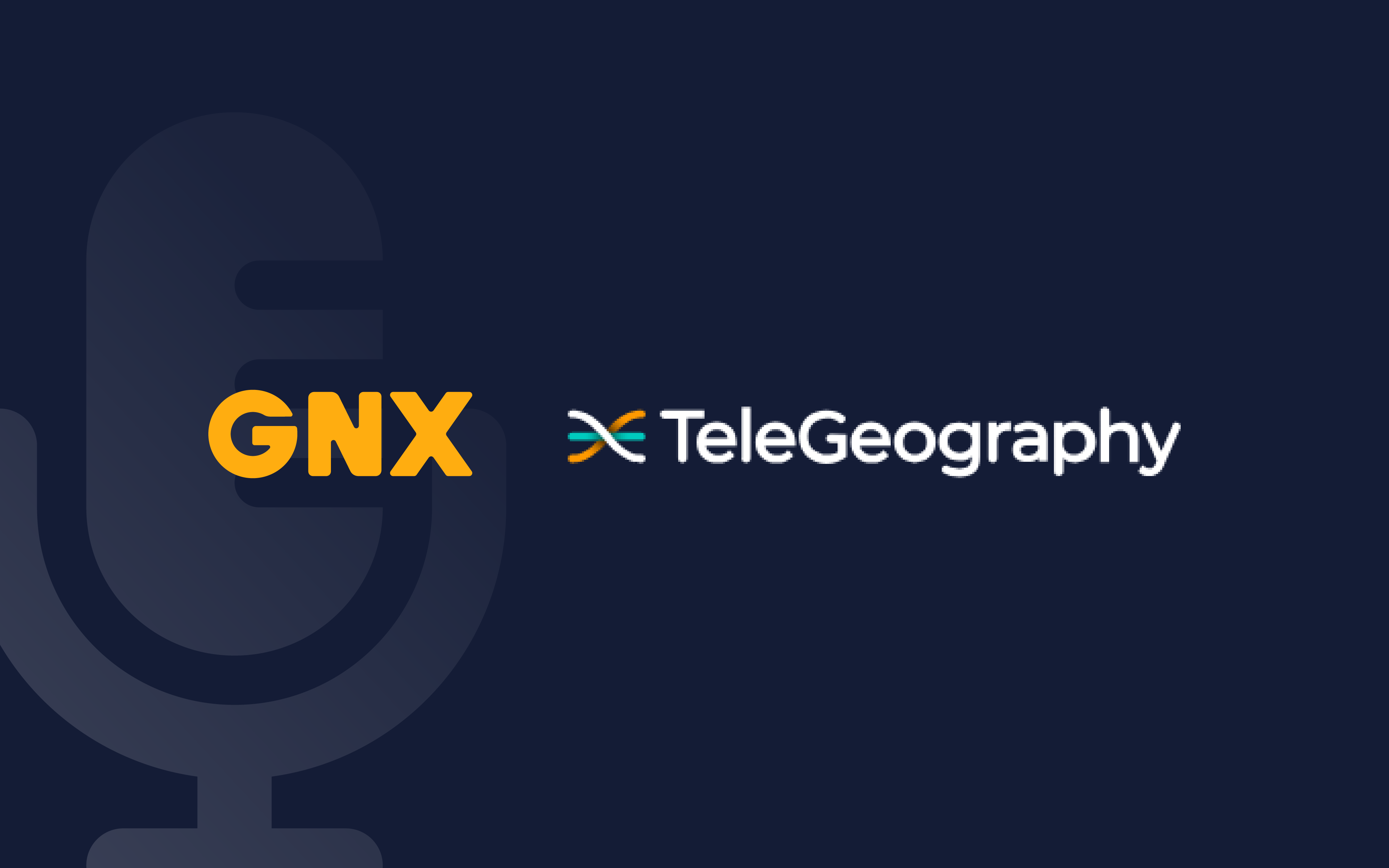Internet Sourcing, as Explained by an Internet Aggregator – Telegeography Podcast

What are the caveats for enterprises when moving away from MPLS and turning to an internet-first kind of strategy?
In this episode of TeleGeography Explains the Internet, Greg Bryan, Senior Manager of Enterprise Research at TeleGeography, and Rutger Bevaart, CEO of GNX, discuss the shift away from MPLS and toward the Internet, and its benefits to the enterprise. However, this also comes with its own challenges, especially when sourcing and managing internet links worldwide.
Listen to the whole episode, or keep reading below for some of the highlights of this very insightful conversation.
From a single vendor to an entire new ecosystem
Instead of having a single vendor that was running your MPLS, which is a very nice closed ecosystem, you’re now dealing with many different technologies and suppliers all in the mix.
So it’s often not just figuring out what technology would work for you from a security point of view or management point of view, but it’s the complete vertical integration that you’re looking for when it comes to underlay services, your management layer and the way you procure services.
So yeah, many challenges there, and I think figuring those things out before you make that transition is probably the best idea you can have.
An additional challenge for international companies
Now, if you have the knowledge, you have the team, you have the expertise to do that as an enterprise—do you want to be focusing on doing that yourself?
The best promise of SD-WAN is just get a few internet lines, stick them in your SD-WAN and the magic will happen and everything will just work. And in practice, that is not something you want to be doing, right?
Because our customers, and I think especially if you look at international businesses, they have business critical processes. These are factories or logistic outlets or things that need to be as close as possible to 100% uptime
So there is definitely some work required in what is a good internet service. Now, if you have the knowledge, you have the team, you have the expertise to do that as an enterprise—do you want to be focusing on doing that yourself? Or is there a solution to that problem? Is there a solution to the problem that you in 20, 30, 40 countries in different currencies with different rates, contracts, languages, support methods, you know, is that something that you want to get engaged with?
Or yeah, is that something that you can use an outsource partner for? And that is, I think, where GNX comes in.
Understanding your key internet requirements
There’s so many intricacies because we all call it Internet, but it’s not the same thing. It means different things to different people.
There’s so many intricacies because we all call it Internet, but it’s not the same thing. It means different things to different people. If you go out and you have your local staff go and buy an Internet service, they might have the experience with buying a residential service, right? So they might think hey, you know, that works.
And then you get an overbooked service, it doesn’t have public IP addresses. There are so many different things. Their Help Desk might not be open 24/7 and your IT team might be sitting in a different continent , or you might have a follow-the-sun team that supports your internal network. And people from India are trying to log a call with a Mexican supplier. I mean, It makes for great stories, but if your business is impacted by it, it’s not going to be a fun ride.
Access to the original post https://blog.telegeography.com/internet-sourcing-explained-by-an-internet-aggregator

We are the leading provider of global internet and private connectivity solutions, here to guide you on your next steps. Get in touch with our team to learn more.


